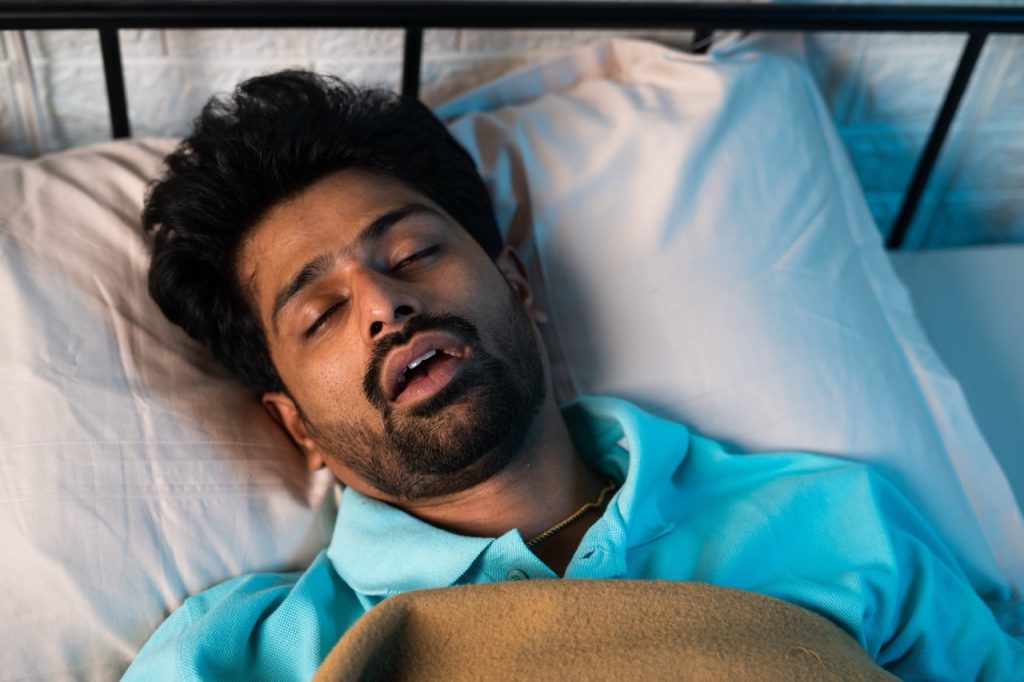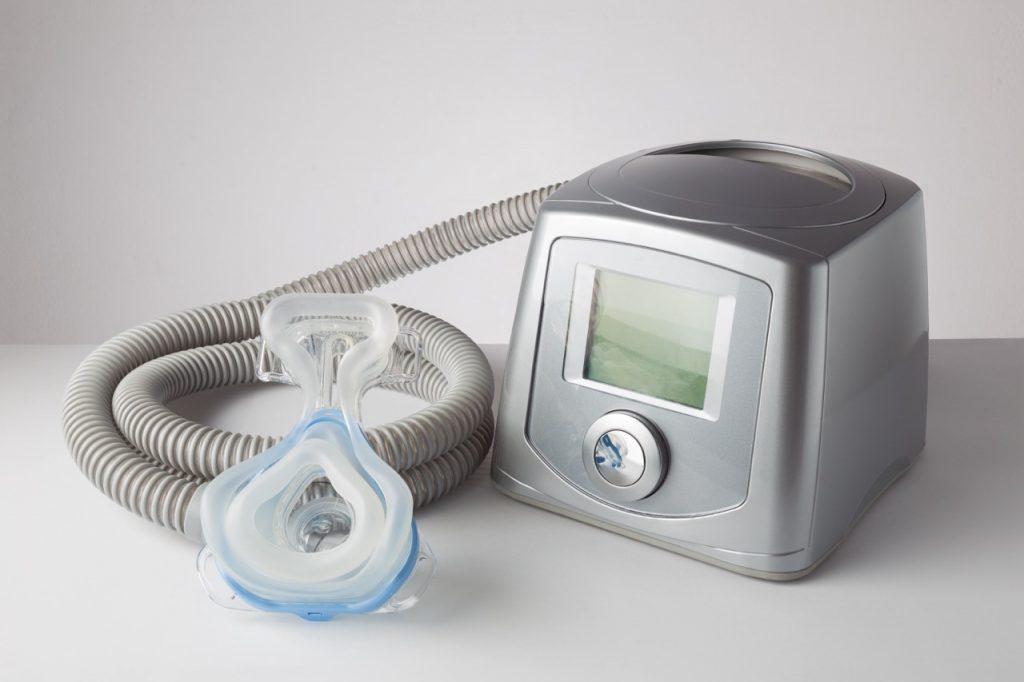Resource Library
Start Reading

Sleep apnea is a common sleep disorder that affects over 39 million Americans. It is characterized by pauses in breathing during sleep, which can lead to a host of health issues if left untreated. One lesser-known but important connection is between sleep apnea and dental health. How can a poor night’s sleep cause problems with your teeth? We examine the close connection between sleep apnea and oral health and explain what to look for and how your dentist can help.
When a person suffers from sleep apnea, they repeatedly stop and start breathing while they sleep, which causes the brain to awaken briefly, keeping them from getting a restful sleep.
Sleep apnea has a variety of symptoms, including:
If left untreated, these symptoms can significantly impact your quality of life and overall health.
 The most common type of sleep apnea is obstructive sleep apnea, which occurs when the muscles in the back of your throat relax too much, causing a blockage in your airway. This obstruction can lead to pauses in breathing and disrupt your sleep cycle.
The most common type of sleep apnea is obstructive sleep apnea, which occurs when the muscles in the back of your throat relax too much, causing a blockage in your airway. This obstruction can lead to pauses in breathing and disrupt your sleep cycle.
Other risk factors for developing sleep apnea include:
Health experts have identified a close relationship between sleep apnea and various health problems, including high blood pressure, heart disease, diabetes, and stroke. The repeated drops in oxygen levels during sleep can strain your cardiovascular system and increase your risk of developing these serious conditions. In addition, sleep apnea has been linked to weight gain and difficulty managing blood sugar levels, further exacerbating the risk of developing chronic health issues.
When repeated breathing pauses occur during sleep, they can lessen saliva production and lead to dry mouth, which in turn can increase the risk of tooth decay, gum disease, and bad breath. Saliva plays a crucial role in maintaining oral health by washing away bacteria and food particles that can lead to tooth decay and gum disease. Without enough saliva, your risk of developing these dental issues increases significantly.
Another way sleep apnea can affect dental health is through teeth grinding (bruxism). Many people with sleep apnea may unknowingly grind their teeth during sleep to try to open their airways. This can cause significant damage to teeth, leading to issues such as tooth sensitivity, worn-down enamel, and jaw pain. A recent study found that people with sleep disorders were more likely to report dental pain (19.79% vs. 11.8%) compared to those without sleep disorders.
In addition, sleep apnea can also contribute to temporomandibular joint (TMJ) disorder. The TMJ is the joint that connects your jaw to your skull, allowing you to open and close your mouth. When you have sleep apnea, the muscles in your jaw may become tense and strained from the efforts to keep your airway open during episodes of interrupted breathing. This tension can lead to pain, clicking or popping noises when opening and closing your mouth, and difficulty chewing.
If you suspect that you may have sleep apnea, it is important to seek help from a medical professional for an accurate diagnosis. Your sleep apnea dentist can play a crucial role in identifying the signs of sleep apnea during routine dental exams, including:
They may also ask about your sleep habits and any symptoms you’ve experienced to determine if further evaluation is necessary.
If sleep apnea is suspected, your dentist can coordinate a comprehensive treatment plan with other healthcare providers, including a sleep specialist. In some cases, your dentist can make a custom dental device for sleep apnea to help keep your airway open during sleep, reducing symptom severity. They may also recommend a sleep apnea mouth guard that can help reduce teeth grinding.
Additionally, your dentist can address any dental issues that may have been exacerbated by sleep apnea, such as tooth decay, gum disease, or teeth grinding. Regular dental cleanings and checkups can help prevent these issues from worsening.
 Using a continuous positive airway pressure (CPAP) machine while sleeping can help keep your airway open and improve breathing at night. In more extreme instances, sleep apnea surgery may be recommended to reduce obstructions and widen airways. Healthcare providers may also recommend lifestyle changes, such as:
Using a continuous positive airway pressure (CPAP) machine while sleeping can help keep your airway open and improve breathing at night. In more extreme instances, sleep apnea surgery may be recommended to reduce obstructions and widen airways. Healthcare providers may also recommend lifestyle changes, such as:
If you’re not sleeping well and experiencing symptoms such as teeth grinding, dry mouth, or jaw pain, you could be suffering from sleep apnea. Penn Dental Family Practice can ensure your oral health isn’t impacted and help put a good night’s sleep within reach. Just call 215-898-PDFP (7337) or complete this form to make an appointment.